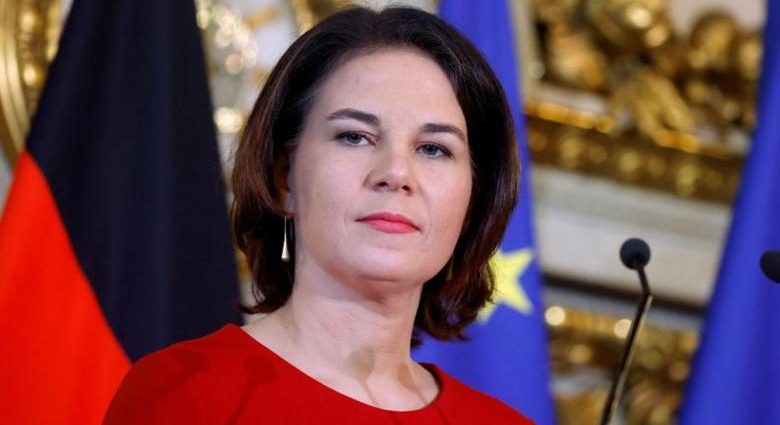Barely back home from his November 4 encounter with Chinese President Xi Jinping at Beijing’s Great Hall of the People, German Chancellor Olaf Scholz found himself on the premises of the former Berlin Kindl brewery on Saturday afternoon for a policy debate with 1,000 invited members of his Social Democratic Party (SPD).
The most important and overriding outcome of his Beijing trip, Scholz told his comrades, was his and Xi’s joint appeal to Russia not to use nuclear weapons in the war in Ukraine. “That alone made the trip worthwhile,” Scholz said.
A leading member of the Scholz delegation who requested anonymity told me that the discussion wasn’t limited to the Ukraine war. Both Scholz and Xi both voiced concerns over current US-China tensions and agreed on the need to avoid future military confrontation. The chancellor was accompanied inter alia by 12 CEOs of top German companies.
The delegation member said that Scholz and his closest advisers see an imminent possibility that Beijing will react sharply to the US chips embargo on China sooner rather than later. “China will not be able to sit on its hands if its ability to progress economically is seriously and deliberately undermined. … It’s an undeclared war, but a war all the same,” the official stated.
In his public exchange of views with Xi, Scholz said that “China is an important economic and trade partner of Germany and Europe, firmly supports trade liberalization, supports globalization and opposes decoupling.”
He added, “Germany is willing to continue to deepen economic and trade cooperation with China, and supports enterprises of the two countries to conduct investment cooperation in each other. … The world needs a multipolar pattern, and the role and influence of emerging countries deserve attention. … Germany will play its due role in promoting the development of EU-China relations.”
The key words in the chancellor’s public statements were, of course, opposition to “decoupling” and the need for a “multipolar pattern.”
In a November 3 opinion essay published by the Politico website, Scholz wrote, “New centers of power are emerging in a multipolar world, and we aim to establish and expand partnerships with all of them.” American officials eschew the qualifier “multipolar,” a phrase often employed by Chinese officials, preferring to speak of a “rules-based international order.”

Scholz was the mayor of the city-state of Hamburg from 2011-2018 and minister of finance in the government of Angela Merkel from 2018-2021. The port of Hamburg, Europe’s second largest after Rotterdam/Antwerp, celebrated its 833rd birthday earlier this year. Hamburg is and knows all about trade. By profession, Scholz is a labor lawyer. Trade and jobs are in his political DNA.
China is – and has been for the past six years – Germany’s largest trading partner. Total trade last year hit US$249 billion. German investment in China has accounted for 43% of total EU foreign direct investment in China on average over the past four years.
These numbers speak for themselves. Germany and China have built and maintained very substantial and mutually beneficial economic relations over an extended period.
For the United States, a declining economic power in relative terms and the nation most indebted to foreign creditors, the highly productive and growing Sino-German relationship is viewed as a threat.
This story, of course, is not new. By the early 20th century, Germany had eclipsed the British Empire and France in industrial and overall economic power, not to speak of the rate of technological advance. Today, China is the up-and-coming challenger threatening the US’ technological and economic predominance.
All’s fair, it appears, in this contest. The US has taken unprecedented measures, including controls on exports of semiconductors and equipment that entail severe damage to America’s remaining pockets of technological leadership, in the hope of keeping the US in the game just a little bit longer.
Significantly, Scholz ignored vehement criticism to his China initiative as well as strong opposition within his own governing coalition of Social Democrats (SPD), Greens and liberal democrats (FDP). Scholz’s antagonists argue that Germany must not become as dependent on trade with China as it allowed itself to become on Russian gas.
The comparison, of course, is nonsensical. It would take too long to debunk the tall tale of German gas dependency promoted by the US, which may have had a hand in the recent unclaimed destruction of the Nord Stream 1 and 2 gas pipelines, both targeted for years by the US.
Free and fair trade, as officially promoted by the US as a sacrosanct matter of principle, finds the level that mutual benefit and market conditions dictate. Germany and China buy and sell as both find in their best interest.
The German Green party, which has now sunk to its lowest level in opinion polls this year (17%), wants Scholz to downgrade relations with China because of human rights issues.

The opposition Christian Democrats (CDU) of the hapless Friedrich Merz, a former BlackRock (Germany) chairman, seems to believe that such a stance is a winning proposition. Polls show that it is not.
Scholz brushed these objections aside with the nearly unanimous support of the German business community. A number of important economic initiatives may come out of his Beijing visit, including China’s possible adoption of BioNTech’s proprietary mRNA Covid-19 vaccine technology.
But the delegation leader who spoke to me on background emphasized that the main subject of the chancellor’s visit was not business but keeping the peace. “We want to have China have a stake in peace; we do not want chip wars to lead to a totally destructive hot war,” he said.
Follow Uwe Parpart on Twitter at @uwe_parpart

